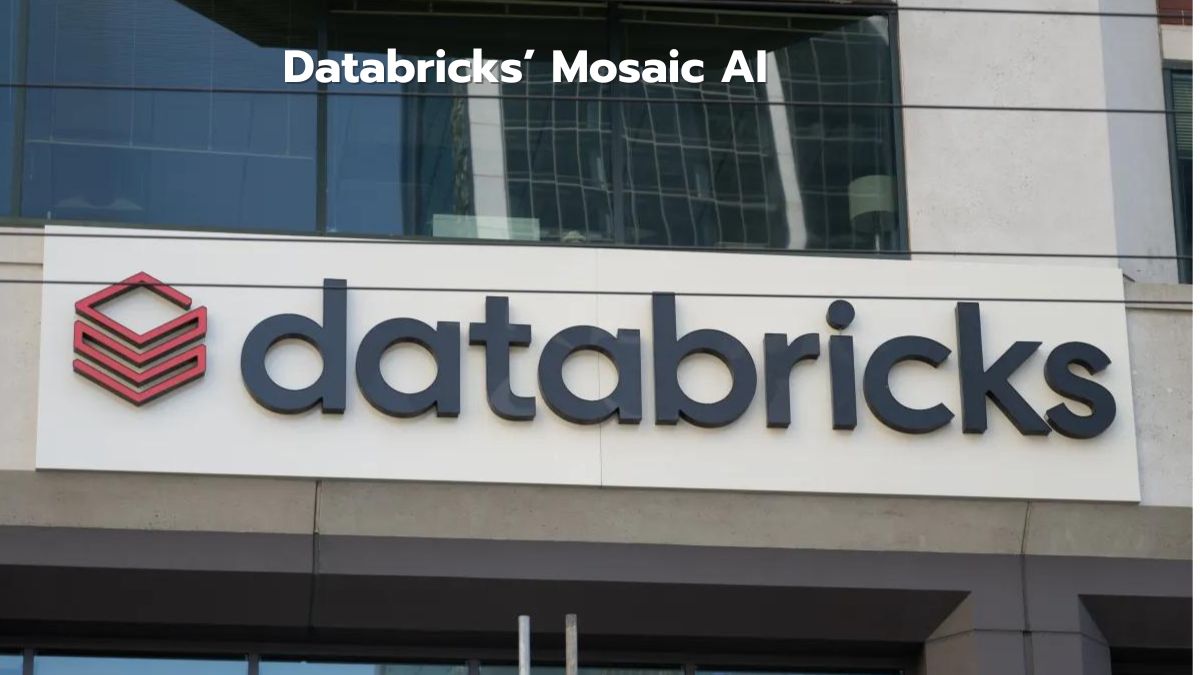Databricks Mosaic AI: Databricks, a renowned company specializing in data and AI, has recently made a significant advancement in its offerings by expanding its Mosaic AI platform. This expansion is specifically designed to assist enterprises in building with Large Language Models (LLMs), which are AI models capable of understanding and generating human-like text.
This move by Databricks marks a substantial progression in the realm of AI, as LLMs are becoming increasingly crucial in various industries for tasks such as content generation, translation, summarization, and more. By facilitating the use of LLMs, Databricks is enabling enterprises to harness the power of these sophisticated AI models, thereby opening up new possibilities for innovation and efficiency.

The expansion of Mosaic AI came about a year after Databricks’ acquisition of MosaicML, a deal that was valued at $1.3 billion. Since the acquisition, MosaicML has been rebranded as Mosaic AI and has become an integral part of Databricks’ AI solutions. The recent expansion was announced at the company’s Data + AI Summit, where Databricks launched several new features for the service.
Databricks Mosaic AI: The Acquisition and Rebranding
A year ago, Databricks acquired MosaicML for a whopping $1.3 billion. The platform, now rebranded as Mosaic AI, has become an integral part of Databricks’ AI solutions. The company is launching several new features for the service, aiming to enhance the quality, reliability, and cost-efficiency of AI models.
New Features and Tools
Databricks is introducing five new Mosaic AI tools: Mosaic AI Agent Framework, Mosaic AI Agent Evaluation, Mosaic AI Tools Catalog, Mosaic AI Model Training, and Mosaic AI Gateway. These tools aim to address the three main concerns of enterprises: improving the quality and reliability of models, ensuring cost-efficiency, and maintaining data privacy.
The Future of AI Applications
Enterprises deploying LLMs into production are using systems with multiple components. These systems often make multiple calls to a model, use various external tools for accessing databases, or perform retrieval augmented generation (RAG). Such compound systems speed up LLM-based applications, save money by using cheaper models for specific queries, and make the results more trustworthy and relevant.
Compound AI Systems: The Future of AI Applications
Databricks envisions that compound AI systems will be the future of high-impact, mission-critical AI applications. These systems are not just about deploying a single large model. Instead, they involve multiple components, including various models, retrievers, vector databases, and tools for evaluation, monitoring, security, and governance.
Compound AI systems offer much higher production quality, allowing organizations to deliver more accurate, safe, and governed AI applications efficiently. They speed up LLM-based applications, save money by using cheaper models for specific queries or caching results, and make the results more trustworthy and relevant by augmenting the foundation models with proprietary data.
What is a simple code generator? Automating Software Development
Mosaic AI Agent Framework and Mosaic AI Tools Catalog
To help customers build these production-quality Generative AI applications, Databricks is launching the Mosaic AI Agent Framework and the Mosaic AI Tools Catalog.
Mosaic AI Agent Framework
The Mosaic AI Agent Framework is a part of Databricks’ initiative to support the development of compound AI systems. This framework provides developers with the tools to build their own Retrieval Augmented Generation (RAG)-based applications. It leverages Databricks’ serverless vector search functionality, which became generally available last month.
Mosaic AI Tools Catalog
The Mosaic AI Tools Catalog is another significant offering from Databricks. It allows organizations to govern, share, and register tools using Databricks Unity Catalog. This ensures models that are tool-enabled can use these in a secure and governed manner, as well as making these tools discoverable across the organization
Conclusion
The expansion of Mosaic AI signifies a new era for enterprise AI. With its focus on improving model quality, ensuring cost-efficiency, and maintaining data privacy, Databricks is paving the way for the future of AI applications. As AI continues to evolve, the role of compound AI systems and tools like Mosaic AI will become increasingly crucial in the enterprise landscape.
